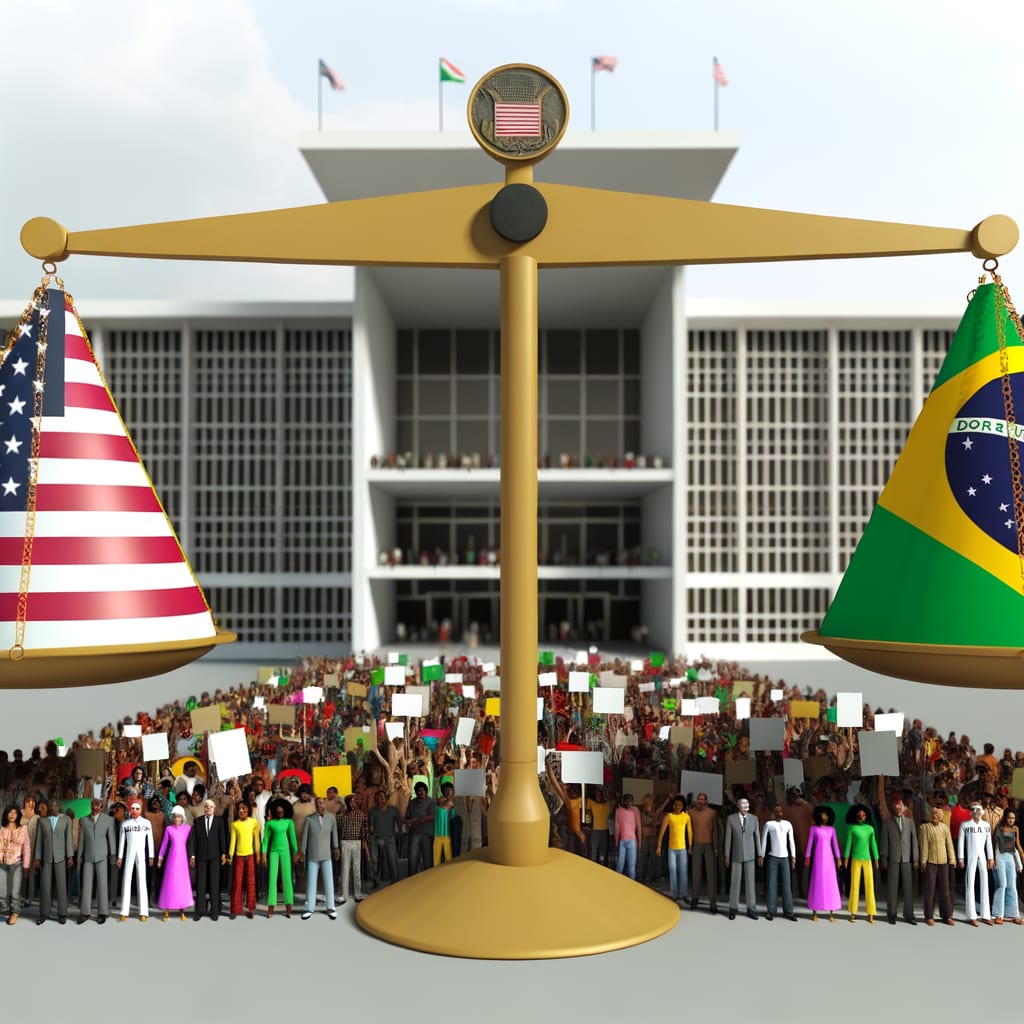Unprecedented US Tariffs on Brazil Stir International Tensions and Test President Lula's Mettle
Brazil and the US are currently embroiled in an escalating trade dispute as President Donald Trump imposes a 50% tariff on Brazilian imports, marking the lowest point in diplomatic relations between the two nations since the Brazilian military dictatorship. This move is perceived by specialists as a pressure tactic by Washington to influence Brazilian justice, particularly the prosecution of far-right former president Jair Bolsonaro. Despite the mounting pressure, Brazilian President Luiz Inácio Lula da Silva remains resilient, although the effects of the new trade measures are expected to be far-reaching.
The Trigger and the Impact
Trump's tariff increase comes as a response to the alleged 'witch hunt' against his ally, former president Bolsonaro. The tariff hike will raise the total surcharge on imported Brazilian products to 50%, and this is expected to significantly impact Brazil's research and development sector due to its dependency on areas of biology and information technology. There are also concerns on the domestic front, as sectors of the Brazilian industry have started to estimate their potential losses and are urging the Lula government to maintain negotiations with the US.
Strategic Exceptions and Political Resilience
Not all sectors are affected equally by the tariff hike. Notably, the aircraft manufacturer Embraer has been exempted, sparing the company from potential losses comparable to those suffered during the Covid-19 pandemic. This strategic move has strengthened a faction within Lula's government that is against retaliatory measures against the US, at least for the time being.
Despite the tariff imposition, Finance Minister Fernando Haddad has stated that Brazil's goal remains to forge more partnerships with the US. On the other hand, Lula's government has experienced a lack of high-level communication with the White House in its attempts to avoid or postpone the tariff.
Public Reaction and International Implications
The tariff hike has sparked protests in Brazil demanding national sovereignty. Meanwhile, a group of Brazilian parliamentarians has written to the Foreign Relations committees of the US House of Representatives and Senate, urging them to reject the tariffs.
International observers view the tariff hike as a political move by Trump, more than an economic strategy. German news outlet Deutsche Welle noted that this move is not about economics but about Trump's politics. Russian news agency TASS reported that Brazil is preparing a response to US tariffs, with President Lula stating, We have always been open for dialogue.
Current Status and Future Prospects
As the tariff comes into effect, Lula has reiterated his readiness for dialogue, with Trump stating that Lula can call him whenever he wants to discuss tariffs and other issues involving the two countries.
However, some Brazilian experts, including former ambassador Rubens Barbosa, believe that adopting commercial retaliations would be a strategic mistake for Brazil. Analysts have also suggested that the tariffs could potentially reduce inflation in Brazil and help Lula in the upcoming elections.
While the full impact of the tariffs is yet to be seen, the situation undeniably poses a significant test for Lula's presidency. Amid the crisis, Lula continues to demonstrate his political resilience, refusing to be cowed by Trump's tactics. As the international community watches closely, the drama of the US-Brazil trade dispute continues to unfold.

